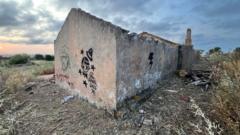The event leaves locals scrambling as emergency services work to restore electricity while authorities manage the growing chaos.
**Chaos Unleashed: Spain and Portugal Experience Major Power Outage**

**Chaos Unleashed: Spain and Portugal Experience Major Power Outage**
A massive power cut causes widespread disruption across Spain and Portugal, stranding passengers and impacting daily life.
The massive power outage that struck Spain and Portugal around midday local time (10:00 GMT) left thousands in distress, mirroring a scene of disorder across both nations. Travelers were left stranded in trains and public transport, while businesses faced immediate closures, throwing many into confusion and unease.
Peter Hughes, a passenger on a train to Madrid, shared his experience: “The first sign of trouble was when my train started to slow down. Soon after, the lights went off, and although emergency lights flickered momentarily, they failed to last.” Four hours later, Hughes reported being stuck on the train about 200 kilometers from Madrid, with working toilets becoming a rarity.
Local residents swiftly came together in support of those stranded. “As I sat on the train, people from nearby villages appeared, distributing supplies—water, bread, fruit. Their generosity was heartwarming,” recounted Jonathan Emery, who was also caught in the outage on a different journey between Seville and the capital.
In the heart of Madrid, Hannah Lowney was left puzzled as the grocery store she was in lost power mid-transaction. “It’s frightening to experience a blackout of this scale in the entire country. I’ve never witnessed anything like it before,” she remarked in a message to BBC Radio.
The chaos extended beyond transport systems. In Benidorm, Mark England found himself amidst fire alarms and closing fire doors in his hotel restaurant as everything went dark during lunch. Schools were not spared either, as Emily Thorowgood, a teacher in Lisbon, continued her class in dim lighting but noted parents were hurriedly collecting their children amid the disruption.
With mobile phone networks intermittently failing, many struggled to get timely updates. Curtis Gladden from La Vall D'Uixo voiced his concerns, stating, “It’s scary. I had no idea what was happening, and I was worried about how long the situation might last.”
By early afternoon, local governments scrambled to address the situation. Spanish Prime Minister Pedro Sanchez convened an emergency meeting while the power operator, Red Electrica, predicted a restoration timeline of six to ten hours. Meanwhile, chaos intensified as reports emerged that electricity might take even longer to restore in Portugal, potentially up to a week.
As daylight waned, affected individuals faced mounting pressures, seeking food and basic amenities while hoping for the power to return. “What do you do if you’re stuck with no plan for your evening accommodations?” questioned London tourist Tom McGilloway, who expressed concern about payment options for hotels and fuel as businesses continued to struggle.
The breakdown of electricity systems within Spain and Portugal serves as a stark reminder of the fragility of essential services, highlighting the need for robust backup plans in instances of widespread outages. As authorities work to restore normalcy, the collective experience of both nations stands testament to resilience amidst chaos.
Peter Hughes, a passenger on a train to Madrid, shared his experience: “The first sign of trouble was when my train started to slow down. Soon after, the lights went off, and although emergency lights flickered momentarily, they failed to last.” Four hours later, Hughes reported being stuck on the train about 200 kilometers from Madrid, with working toilets becoming a rarity.
Local residents swiftly came together in support of those stranded. “As I sat on the train, people from nearby villages appeared, distributing supplies—water, bread, fruit. Their generosity was heartwarming,” recounted Jonathan Emery, who was also caught in the outage on a different journey between Seville and the capital.
In the heart of Madrid, Hannah Lowney was left puzzled as the grocery store she was in lost power mid-transaction. “It’s frightening to experience a blackout of this scale in the entire country. I’ve never witnessed anything like it before,” she remarked in a message to BBC Radio.
The chaos extended beyond transport systems. In Benidorm, Mark England found himself amidst fire alarms and closing fire doors in his hotel restaurant as everything went dark during lunch. Schools were not spared either, as Emily Thorowgood, a teacher in Lisbon, continued her class in dim lighting but noted parents were hurriedly collecting their children amid the disruption.
With mobile phone networks intermittently failing, many struggled to get timely updates. Curtis Gladden from La Vall D'Uixo voiced his concerns, stating, “It’s scary. I had no idea what was happening, and I was worried about how long the situation might last.”
By early afternoon, local governments scrambled to address the situation. Spanish Prime Minister Pedro Sanchez convened an emergency meeting while the power operator, Red Electrica, predicted a restoration timeline of six to ten hours. Meanwhile, chaos intensified as reports emerged that electricity might take even longer to restore in Portugal, potentially up to a week.
As daylight waned, affected individuals faced mounting pressures, seeking food and basic amenities while hoping for the power to return. “What do you do if you’re stuck with no plan for your evening accommodations?” questioned London tourist Tom McGilloway, who expressed concern about payment options for hotels and fuel as businesses continued to struggle.
The breakdown of electricity systems within Spain and Portugal serves as a stark reminder of the fragility of essential services, highlighting the need for robust backup plans in instances of widespread outages. As authorities work to restore normalcy, the collective experience of both nations stands testament to resilience amidst chaos.





















